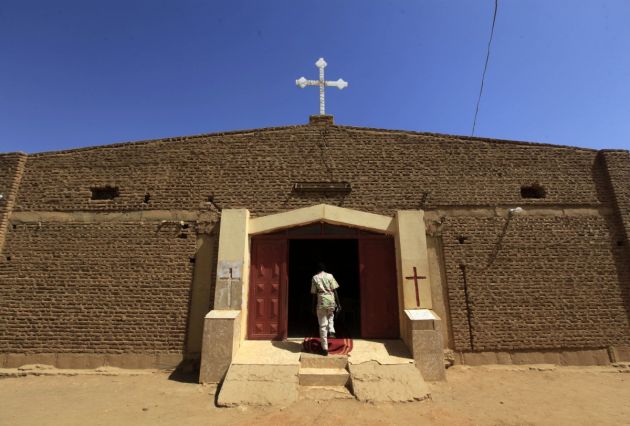UN official urges end to attacks on South Sudan aid workers

The top United Nations humanitarian official in South Sudan has expressed deep concern about the fighting in the eastern state of Jonglei and urged a stop to attacks on aid workers and supplies.
"I have been informed of attacks on humanitarian actors and the seizure of humanitarian assets and commodities. This must stop," U.N. humanitarian coordinator, Toby Lanzer, said in a statement.
Lanzer noted that civilians in need of aid and protection from violence must be allowed to move freely. He said the provision of "impartial, neutral and independent humanitarian action" must be respected by all armed actors.
Landlocked South Sudan is the world's newest country and one of its poorest. It attained independence on July 9, 2011 following many decades of civil war with its neighbors in the north of the country.
Sudan is a mainly Islamic country and South Sudan's estimated population of around 8.2 million are mainly Christians or followers of traditional African religions.
Sudan's President Omar Hassan al-Bashir has said he wants to adopt a "100 percent" Islamic constitution now that the South has split off.
The government in Khartoum says the new constitution will guarantee religious freedom, but many in Sudan's Christian minority are wary
Some of the security problems for the fledgling country stem from rivalry with Sudan over oil fields in disputed areas on the borders of the two countries.
But South Sudan also has armed factions in different parts that make governing the country difficult.
Lanzer's warning came the day before a South Sudanese bishop was to receive a coveted peace prize being presented by U.N. General-Secretary Ban Ki-moon in recognition of his efforts to build trust among warring communities in the conflict-torn region.
Bishop Emeritus Paride Taban, a co-founder of the Sudan Council of Churches, a member of the humanitarian ACT Alliance was to receive the 2013 Sergio Viera de Mello Prize.
A foundation named after the U.N. official who was killed in a Baghdad bomb blast 10 years ago awards the prized. It named Taban as this year's recipient for his work at the Holy Trinity Peace Village in Kuron, in the east of South Sudan.
Set up in 2005, the Kuron village brings together people from different tribes and faiths that have been in conflict for years over cattle rustling.
Separately, the United Nations and its humanitarian partners in South Sudan responded recently to the needs of over 23,000 people in Akobo County affected by the Feb. 8 fighting in Walgak.
The U.N. cited media reports that the people of Walgok were migrating north to the wetlands with cattle when they came under attack by an armed force.
Humanitarian workers are aiding 19,000 civilians in Pibor County whose lives have been at risk due to violence between different communities and hostilities between the army and non-State armed actors in the past months, Lanzer said.
South Sudan has also been plagued by inter-communal violence. In addition to Jonglei state, there have been an increasing number of cattle raids in recent weeks in Unity, Lakes and Warrap states.
In Thursday's statement, Lanzer urged armed groups to differentiate between civilians and people directly involved in hostilities, regardless of their ethnicity or location.
"I call on all armed actors to respect their obligations under international law to ensure that civilians are spared from the consequences of military engagement."
He also urged the South Sudan's government to reinforce efforts to strengthen law and order and hold to account those who are responsible for committing crimes and putting civilian populations at risk.
On Feb. 15, the U.N. refugee agency said that was seeing a large number of Hepatitis E cases in refugee camps in South Sudan, with more than 6,000 cases – and 111 deaths – since July.
The largest number of cases and suspected cases, almost 70 percent, is in the Yusuf Batil camp in Upper Nile state which holds 37,229 refugees, according to the Office of the UN High Commissioner for Refugees (UNHCR).
Other camps in Upper Nile state – Jamam, Gendrassa and Doro – have recorded nearly 2,000 cases and 30 deaths.
Further west, in Unity state, 125 cases or suspected cases and four deaths have been recorded at the Yida site, which, with a population of 65,541 people, holds the largest number of refugees in South Sudan.
"The majority of refugees in camps where the disease is most widespread are from Blue Nile state, an isolated rural area in Sudan where there are few established toilet facilities and uncontaminated water is not readily available," said UNHCR spokesperson Adrian Edwards in Geneva.
"UNHCR believes the growth in the population due to the refugee influx from Blue Nile could be one of the factors in the rapid spread of the disease," he told reporters.